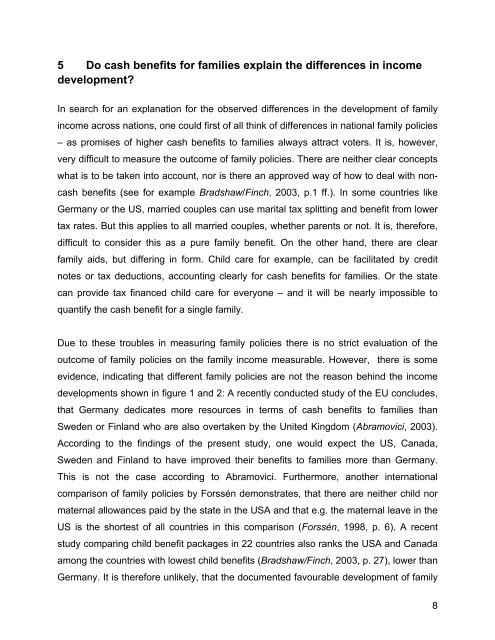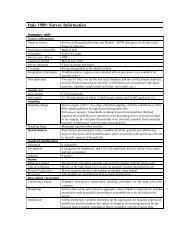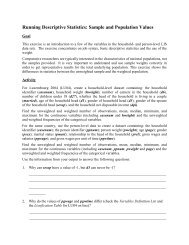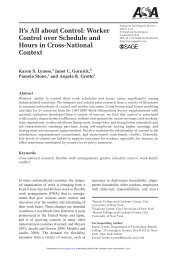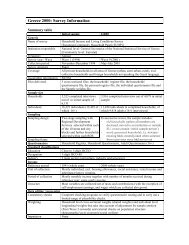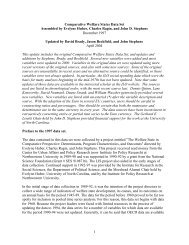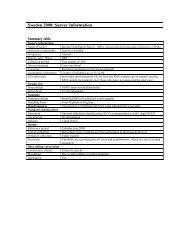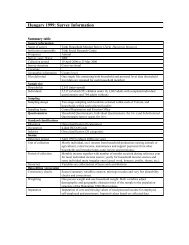Nicola Dickmann: - LIS
Nicola Dickmann: - LIS
Nicola Dickmann: - LIS
Create successful ePaper yourself
Turn your PDF publications into a flip-book with our unique Google optimized e-Paper software.
5 Do cash benefits for families explain the differences in incomedevelopment?In search for an explanation for the observed differences in the development of familyincome across nations, one could first of all think of differences in national family policies– as promises of higher cash benefits to families always attract voters. It is, however,very difficult to measure the outcome of family policies. There are neither clear conceptswhat is to be taken into account, nor is there an approved way of how to deal with noncashbenefits (see for example Bradshaw/Finch, 2003, p.1 ff.). In some countries likeGermany or the US, married couples can use marital tax splitting and benefit from lowertax rates. But this applies to all married couples, whether parents or not. It is, therefore,difficult to consider this as a pure family benefit. On the other hand, there are clearfamily aids, but differing in form. Child care for example, can be facilitated by creditnotes or tax deductions, accounting clearly for cash benefits for families. Or the statecan provide tax financed child care for everyone – and it will be nearly impossible toquantify the cash benefit for a single family.Due to these troubles in measuring family policies there is no strict evaluation of theoutcome of family policies on the family income measurable. However, there is someevidence, indicating that different family policies are not the reason behind the incomedevelopments shown in figure 1 and 2: A recently conducted study of the EU concludes,that Germany dedicates more resources in terms of cash benefits to families thanSweden or Finland who are also overtaken by the United Kingdom (Abramovici, 2003).According to the findings of the present study, one would expect the US, Canada,Sweden and Finland to have improved their benefits to families more than Germany.This is not the case according to Abramovici. Furthermore, another internationalcomparison of family policies by Forssén demonstrates, that there are neither child normaternal allowances paid by the state in the USA and that e.g. the maternal leave in theUS is the shortest of all countries in this comparison (Forssén, 1998, p. 6). A recentstudy comparing child benefit packages in 22 countries also ranks the USA and Canadaamong the countries with lowest child benefits (Bradshaw/Finch, 2003, p. 27), lower thanGermany. It is therefore unlikely, that the documented favourable development of family8


